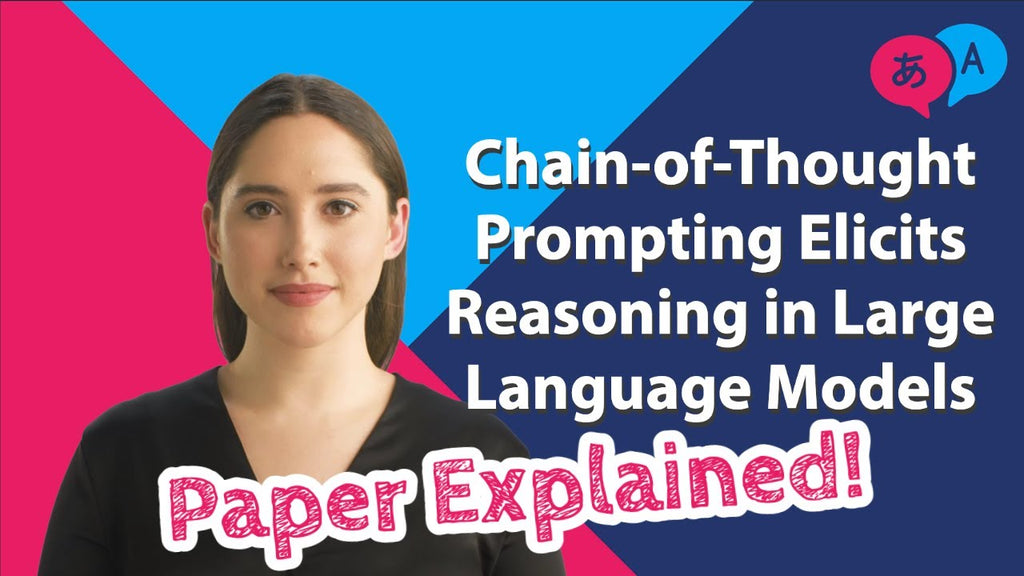MLLM RSS
Chain-of-Thought Prompting Elicits Reasoning in Large Language Models
We explore how generating a chain of thought -- a series of intermediate reasoning steps -- significantly improves the ability of large language models to perform complex reasoning. In particular, we show how such reasoning abilities emerge naturally in sufficiently large language models via a simple method called chain of thought prompting, where a few chain of thought demonstrations are provided as exemplars in prompting. Experiments on three large language models show that chain of thought prompting improves performance on a range of arithmetic, commonsense, and symbolic reasoning tasks. The empirical gains can be striking. For instance, prompting a 540B-parameter...
Dissociating language and thought in large language models: a cognitive perspective
Today's large language models (LLMs) routinely generate coherent, grammatical and seemingly meaningful paragraphs of text. This achievement has led to speculation that these networks are -- or will soon become -- "thinking machines", capable of performing tasks that require abstract knowledge and reasoning. Here, we review the capabilities of LLMs by considering their performance on two different aspects of language use: 'formal linguistic competence', which includes knowledge of rules and patterns of a given language, and 'functional linguistic competence', a host of cognitive abilities required for language understanding and use in the real world. Drawing on evidence from cognitive neuroscience,...
NVIDIA's New AI: Better AI Videos Are Here!
Abstract Generating Long Videos of Dynamic Scenes We present a video generation model that accurately reproduces object motion, changes in camera viewpoint, and new content that arises over time. Existing video generation methods often fail to produce new content as a function of time while maintaining consistencies expected in real environments, such as plausible dynamics and object persistence. A common failure case is for content to never change due to over-reliance on inductive biases to provide temporal consistency, such as a single latent code that dictates content for the entire video. On the other extreme,...
Tags
- All
- Agentic AI
- AGI
- AI
- AI Art
- AI Ethics
- AI Girlfriends
- AI Models
- AI Risk
- ai tools
- Alan D. Thompson
- Alexandr Wang
- Andrew Huberman
- Andrew Ng
- Artificial Cognition
- Aurora Supercomputer
- Authenticity
- Autism Spectrum
- AutoGPT
- Aza Raskin
- Azure Open AI
- Azure OpenAI Service
- Bias Compensation
- Bias Therapy
- Brian Roemmele
- Chain-of-Thought Prompting
- ChatGPT
- Christopher Rufo
- climate change
- Cognition Enhancement
- Cognitive Bias
- Cognitive Content
- Cognitive Performance
- Collective Intelligence
- Collective Stupidity
- Communication
- Consciousness
- Cosmology
- Critical Race Theory
- Daniel Dennett
- Daniel Schmachtenberger
- David Shapiro
- Deep Thought
- Dennis Prager
- Digital Minds
- Digital Thoughts
- Diversity
- Dojo
- Douglas Murray
- Elon Musk
- Emad Mostaque
- Equity
- Eric Weinstein
- Ethical Community Development
- Ethics
- Everyman
- Exponential Enterprise
- Fei-Fei Li
- Foresight
- Fred Lerdahl
- Frontiers Forum
- Futurecrafting
- Futurework
- Gary Marcus
- Gemini
- Gender
- Gender Pronouns
- Generative AI
- Generative Theory of Tonal Music (GTTM)
- Geoffrey Hinton
- Geoffrey Miller
- Glenn Loury
- Governance
- GPGICs
- GPT-4
- GPT-5
- Higher Education
- Human Potential
- Humanities
- Identity
- Ilya Sutskever
- Implicit Association Tests
- Intel
- Intelligence
- James Lindsay
- Joe Rogan
- Jordan B Peterson
- Jungian Archetypes
- Konstantin Kisin
- Language
- Lex Fridman
- Libra
- Life Coaching
- Liv Boeree
- Male Loneliness
- Marcus Aurelius
- Marcus T. Anthony
- Matt Walsh
- Matthew Berman
- Max Tegmark
- MemoryGPT
- Mental Health
- metabotropic receptors (MRs)
- Metacrisis
- Michio Kaku
- Microsoft AI
- Microsoft Copilot
- Microsoft Jarvis
- Microsoft Open AI
- Microsoft Semantic Kernel
- Millennials
- Mind Reading
- Minecraft
- Mirella Lapata
- MIT
- MLLM
- Moha Bensofia
- Morality
- Multimodal Large Language Model
- Multiversal Stories
- Music
- Narcissism
- Neurodivergence
- Neuroplasticity
- Neuroscience
- Nvidia
- OpenAI
- optical computers
- Personal Development
- Peter Bannon
- Peter H. Diamandis
- Philosophy
- pinecone
- Psychology
- Ramani Durvasula
- Ray Jackendoff
- Ray Kurzweil
- Reflection
- Reid Hoffman
- Relationships
- Religion
- Richard Haier
- Robotic Process Automation (RPA)
- robotics
- Sabine Hossenfelder
- Sam Altman
- Sam Harris
- Sebastien Bubeck
- semantic search
- Seneca
- Simulation
- Singularity Ready
- Stephen Fry
- String theory
- Stupidity
- Super Alignment
- Superintelligence
- Susan Blackmore
- Synthetic Intelligence
- Synthetic Mind
- Technology
- Terence McKenna
- Tesla
- Tesla AI
- The Hero Archetype
- Theism
- Theory of Mind
- Thomas Sowell
- Thought
- Thought Experiments
- Transactivism
- transcendence
- Translation
- Tree of Thoughts
- Tristan Harris
- Turing Lectures
- Unconscious Bias Training
- Victor Davis Hanson
- Wes Roth
- Will Caster
- Woke Ideologies
- Worker Productivity
- Worker Satisfaction
- Yann LeCun
- Yuval Noah Harari


